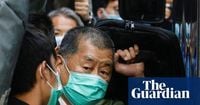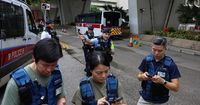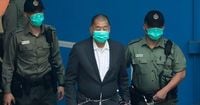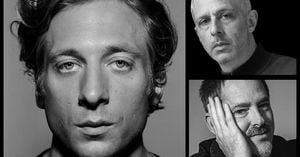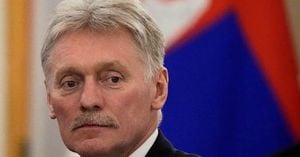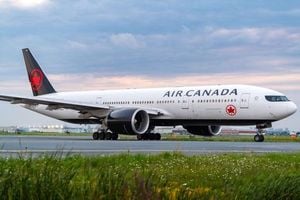On August 28, 2025, the curtain finally fell on the marathon national security trial of Jimmy Lai, the 77-year-old Hong Kong media tycoon and pro-democracy advocate, as closing arguments wrapped up in a packed courtroom. The trial, which has become a lightning rod for global debate over press freedom and the rule of law in Hong Kong, now awaits a verdict that could come in weeks or even months. If convicted, Lai faces a sentence ranging from three years to life behind bars.
Lai, the founder of the now-defunct Apple Daily newspaper, was arrested in 2020 under a sweeping national security law imposed by Beijing. That law—enacted in the wake of massive anti-government protests in 2019—has been widely criticized by rights groups and Western governments as a tool for silencing dissent and curbing freedoms once promised to the former British colony. According to Reuters, the trial spanned 156 days, nearly double the original estimate, making it the most high-profile prosecution yet under the controversial law.
The charges against Lai are severe: conspiracy to collude with foreign forces and conspiracy to publish seditious material. Prosecutors allege that Lai and six former executives used Apple Daily as a platform to advocate for foreign sanctions and other hostile acts against Hong Kong and China, particularly by urging the United States, Britain, and Japan to take action. Lai is also accused of financing the advocacy group Stand with Hong Kong, which Beijing claims is linked to foreign interference.
Lai has pleaded not guilty to all charges. His defense team, led by lawyers Robert Pang and Marc Corlett, has fiercely contested the prosecution’s narrative. Pang argued that Lai’s social media posts and live chats amounted to nothing more than "armchair punditry"—the kind of spirited political banter one might overhear in a Hong Kong cha chaan teng over dim sum. "He’s commenting on world affairs, something that we see every day in cha chaan tengs or over the dim sum table," Pang said, as reported by Reuters. Corlett, meanwhile, dismissed the prosecution’s star witness, Chan Tsz-wah, as a "serial liar," and insisted that there was no evidence Lai had directed or agreed with alleged co-conspirators after the security law took effect.
The prosecution, however, painted a starkly different picture. They accused Lai of persistently requesting foreign intervention—even after his arrest in August 2020—and described his actions as a betrayal of national interests. "The acts were a betrayal of national interest and security," prosecutors stated, according to AP. They cited 161 articles published by Apple Daily as proof of a coordinated campaign to solicit foreign sanctions, arguing that Lai’s testimony was not credible and that his collaborations with foreign entities revealed an "unwavering intent" to solicit hostile actions against China and Hong Kong.
The legal wrangling reached a fever pitch in the final week of arguments, with frequent clashes between the defense and the bench. Judge Esther Toh, one of three judges appointed to handle national security cases, pushed back against the defense’s emphasis on free expression. She argued that freedom of expression has limits, referencing the arrests of individuals in the U.S. and Britain over protests related to Palestine. "It’s good to say la-di-da, freedom of expression is not illegal. Well, that’s true, but it’s not an absolute," Toh remarked, as quoted by Reuters.
Judge Alex Lee further clarified that the case was not about journalism per se, but rather about whether Lai had explicitly requested foreign governments to impose sanctions on Hong Kong and China. This distinction has become a flashpoint in the broader debate over the city’s rapidly changing media landscape.
The trial’s conclusion comes after months of delays, some caused by concerns over Lai’s health. The septuagenarian, who has spent more than four and a half years in detention, reported heart palpitations earlier this month, prompting a postponement of the closing arguments. According to the Hong Kong government, a medical examination found no abnormalities, and officials insisted that Lai was receiving adequate care in custody. Nevertheless, his supporters remain deeply concerned. Resident Chan Chung-yee, who queued outside the court on the final day, said, "Jimmy Lai did a lot of good deeds for us Hong Kongers." He likened Lai to a flag representing freedom and democracy.
The international response has been swift and vocal. U.S. President Donald Trump, in a Fox News radio interview released on August 14, 2025, declared, "I’m going to do everything I can to save him," adding that he had already raised the issue with Chinese officials. Meanwhile, Reporters Without Borders, in conjunction with 72 human rights and press freedom organizations, sent a letter to British Prime Minister Keir Starmer urging him to demand Lai’s "urgent humanitarian release." Lai, a British citizen, has become a symbol for those who fear that the freedoms promised to Hong Kong at the 1997 handover are rapidly eroding.
China’s position remains unyielding. Authorities accuse Lai of stirring up anti-China sentiment and firmly oppose what they call foreign interference in their internal affairs. Beijing insists that the national security law is necessary to restore stability and security to the city after the tumultuous protests of 2019. Critics, however, argue that the law is being wielded as a blunt instrument to suppress dissent and roll back the civil liberties that were supposed to be protected for at least 50 years after the handover.
The verdict, whenever it comes, will resonate far beyond Hong Kong’s borders. The case is widely seen as a litmus test for the city’s judicial independence and the future of press freedom in Asia’s financial hub. As AP noted, the trial has "drawn international attention as a test of press freedom and judicial independence." Some Western governments, including the United States, have described the proceedings as politically motivated and have called for Lai’s immediate release. Chinese and Hong Kong authorities, for their part, insist that Lai is being given a fair trial.
Lai’s journey from poverty to prominence is itself a remarkable story. After fleeing mainland China as a child, he built a business empire in British-ruled Hong Kong and, following the 1989 Tiananmen Square massacre, founded Apple Daily—a newspaper that became a thorn in Beijing’s side with its relentless criticism of Chinese rule. His defiance in the face of overwhelming odds has made him a hero to some and a traitor to others.
As the courtroom drama fades and the world waits for a verdict, the fate of Jimmy Lai hangs in the balance. What’s clear is that the outcome of this trial will shape not just the future of one man, but the trajectory of freedom, dissent, and the rule of law in Hong Kong for years to come.
